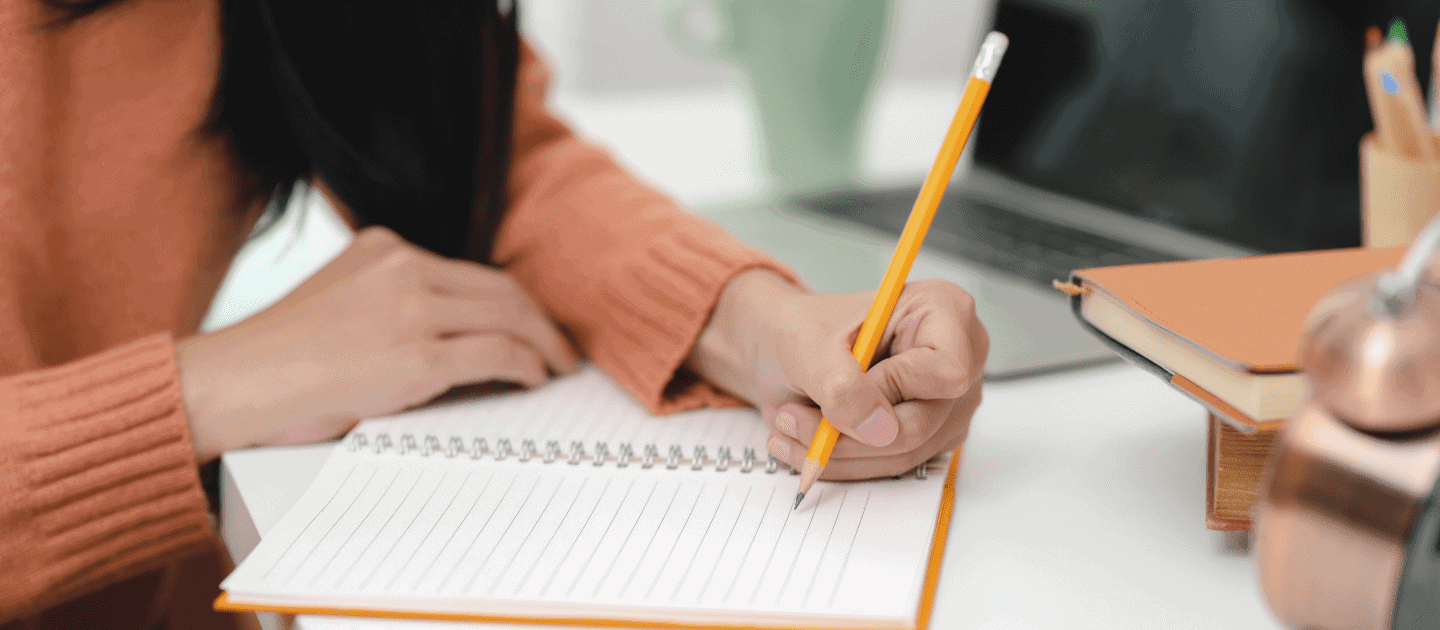
Self and Peer-Correction Techniques in Teaching
Vocabulary and grammar instruction alone is not enough to become an expert in writing. Students that use self-regulation strategies exhibit increased writing skills and success.
14 Apr 2024
April 27, 2022

Vocabulary and grammar instruction alone is not enough to become an expert in writing. Students that use self-regulation strategies exhibit increased writing skills and success. Specific self-regulation behaviors exhibited in the writing process can be classified into seven categories: regulation of environmental factors, regulation of sensory and motivational factors, planning, strategy development, regulation of temporal and social factors, monitoring, and evaluation. —Ayla Reau
Self-regulation is defined as the “whole of the thoughts, emotions, and behaviors that the individuals develop in order to” determine, and make the efforts needed, to reach goals. The current body of research suggests that vocabulary and grammar instruction alone is not enough to become an expert in writing, and that “use of self-regulation strategies is important and necessary for increasing writing success and performance.”
While current research has shown a strong relationship between self-regulation and writing skills, there is insufficient detailed research on which “behaviors exhibited in the writing process can be accepted as self-regulation skills.”
Therefore, the study by Sarikaya and Yılar seeks to identify in detail the “self-regulation behaviors exhibited by the 4th-grade students in the writing process within the scope of peer-assisted writing activities.”
A peer-assisted writing environment was used in this study to reveal students’ thinking styles and self-regulation behaviors, but the behaviors seen from this study can be transferred to independent writing. Peer-assisted writing can be defined as “the process in which students work together in pairs (in the context of writing) to plan, create, write and edit a story or text.”
The student participants exhibited self-regulation behaviors that could be classified into seven categories: “regulation of environmental factors, regulation of sensory and motivational factors, planning, strategy development, regulation of temporal and social factors, monitoring, and evaluation.”
The following section lists the behaviors the authors observed in their student participants in each of these categories. Teachers can guide and model to students how to use these strategies in writing in relation to self-regulation. In addition, writing interventions could also be developed around these specific skills or categories.
The study observed behaviors for the regulation of environmental factors such as the student arranging or checking the lighting, temperature, and sitting position. When participants try to organize the physical environment before writing they are identifying and eliminating distracting factors to create a positive environment for writing to occur.
Behaviors for the regulation of sensory and motivational factors were observed, like subject interest, maintaining motivation, and rewarding oneself. Goal and target setting in particular is key to initiating the self-regulation process as goals serve as a way for students to continue to monitor and evaluate the entire writing process.
The study observed behaviors for planning-related self-regulation. For example, a student would focus on the purpose of writing, question the topic and text, or thinking about the story before and during writing. These behaviors enable students to self-organize their writing. Questioning of what is done and what to do next, along with accessing prior knowledge, all require self-regulation skills.
Strategy development behaviors were observed, including researching the topic, writing more legibly, paying attention to transitions, and others. “Strategy development behaviors are regarded as self-regulation skills in relation to writing action such as making plans to avoid deviating from the subject of writing, forming drafts in mind or by writing and sticking to this draft, paying attention to the harmony of ideas.”
Planning and using time effectively, and seeking help are behaviors related to temporal and social factors and require strategies for understanding and communicating.
The study observed the self-regulation behaviors related to monitoring. For example, students would review for typos, evaluate the level of writing, and check for clarity and adherence to the topic. The ability to follow the writing process with a self-developed monitoring mechanism (comparing their goals to their performance) requires advanced self-regulation skills.
Evaluation behaviors, like comparing performance and deciding if the goal is met, were identified during the writing process. “The process of reviewing, editing, decision making, judgment, and, accordingly, regulating the behavior of the writers are the integral parts of self-regulation.”
İsmail Sarikaya & Ömer Yılar (2021) Exploring Self-Regulation Skills in the Context of Peer Assisted Writing: Primary School Students’ Sample, Reading & Writing Quarterly, 37:6, 552-573, DOI: 10.1080/10573569.2020.1867677
Summary by: Ayla Reau—Ayla is excited to help continue to grow the MARIO Framework, seeing the potential for it to impact all students across any educational context.